What starts as a temporary solution can quickly turn into a long-term problem, necessitating professional intervention. Ignoring the signs can lead to severe consequences for both mental and physical health. It’s not just about breaking a habit; it’s about addressing the root cause of the dependency. While the urge to reach for a cup of coffee during withdrawal might be strong, caffeinated drinks can worsen your sleep struggles. Caffeine acts on the nervous system,7 increasing alertness and anxiety and making it harder to sleep. Opt for herbal teas, decaf coffee, natural juices, or water to support your body’s detox process and minimize disruptions during this challenging period.
- The struggle with withdrawal insomnia can feel like an eternity—but rest assured, it’s not forever.
- As alcohol starts to leave your system, there’s a rebound effect which stimulates your brain and disrupts your sleep cycle.
- But it’s important to try because alcohol is a depressant and can seriously affect your health if you drink too much of it.
- “The one-year mark is when your overall risk of different cancers has leveled off,” says Dr. Mosquera.
Factors That Influence Withdrawal Insomnia Severity
Struggling to fall asleep without alcohol might seem like a harmless habit, but it’s often a red flag for deeper issues. Many people find themselves relying on a nightly drink to drift off, unknowingly masking underlying sleep problems. This dependency can disrupt natural sleep patterns and indicates a potential slide toward alcohol addiction. The journey of sleep improvement after quitting alcohol is a gradual but rewarding process. trouble sleeping without alcohol From the initial challenges of the first week to the long-term benefits of restored sleep patterns, each stage brings its own set of changes and improvements. While the immediate effects may include some sleep disturbances, the short-term improvements in sleep duration and quality soon follow.
- Using electronics like TV or smartphones before bed should also be avoided.
- If you can’t sleep without alcohol, then you should first figure out why.
- From the initial challenges of the first week to the long-term benefits of restored sleep patterns, each stage brings its own set of changes and improvements.
- The more sleep debt you have, the worse your energy, mood, and productivity will be.
Can lifestyle changes improve sleep during alcohol withdrawal?
One of the most important things you can do for your sleep is to find a routine and stick to it. This may be difficult at first, but it will help your body get into a healthy sleep rhythm. There are all kinds of different tools that can be used to help you fall asleep and stay asleep. Keep an open mind, and give them all a try – even if they sound a bit “weird” or you don’t feel like they’ll help.

How long does insomnia last after quitting alcohol?
She believes addiction and mental health issues are universal human experiences that can serve as important entry points onto a path toward self-realization and well-being. Being CERTAIN that you’ll find a solution to a problem drastically increases your odds of doing so. This basic truth of the human mind applies just as much to alcohol withdrawal insomnia as anything else in life. I really believe that kava powder is an underrated solution for occasional sleeplessness – and more importantly, that it can help many people suffering from alcohol withdrawal insomnia.
Nectar memory foam mattress review: A delicious night’s sleep

Research in the Journal of Clinical Sleep Medicine highlights effective insomnia treatments. When a person has become alcohol-dependent and abstains from alcohol, they will face some serious issues. Our brain chemistry and sleep cycle take a while to adjust so that they are running properly without alcohol. The National Sleep Foundation explains how alcohol affects the levels of neurotransmitters that regulate sleep. This adjustment creates a calming, sleep-like condition, helping you relax even Alcoholics Anonymous though it doesn’t provide the restorative benefits of real sleep.
When you stop drinking, your brain must adjust to functioning without alcohol, leading to hyperactive neurotransmitters that make sleep difficult. By employing these professional interventions and self-care strategies, you can improve your sleep quality and aid your recovery from alcohol use disorder more effectively. Sleep typically begins improving during this period, though inconsistently. The National Institute on Drug Abuse (NIDA) notes that sleep latency (the time it takes to fall asleep) gradually decreases during this phase.

Find Lasting Recovery for Alcohol Use Disorder at Sana Lake Recovery
Waking up at the same time – even if you’re still tired – will help you feel more tired at night, too. Difficulty sleeping is often caused by drinking too much alcohol before bedtime—a habit which can lead to physical dependence if not addressed quickly enough. Insomnia may also signal an underlying anxiety disorder or depression which should be addressed as soon as possible through therapy or medicine prescribed by a doctor. But as the alcohol is metabolized, it disrupts your sleep cycles, particularly REM sleep—the restorative part of the sleep process. For years, I thought a few drinks before bed were harmless or even helpful for relaxation. But as my relationship with alcohol deepened, so did my struggles with sleep.
- This may seem confusing at first, but it is based on the theory that spending too much time in your bed can cause you to have insomnia.
- While alcohol doesn’t metabolize faster during sleep, it can interfere with the diagnosis and treatment of sleep disorders.
- If you are experiencing sleep problems, be sure to talk to your doctor about your options.
- Dependency on alcohol often begins as a coping mechanism for anxiety or stress.
A study done in 2013 revealed that while alcohol does tend to help a person fall asleep quicker, it also reduces the REM sleep phase, which ultimately affects sleep quality. The nightcap is often thought of as being able to help a person sleep better, since one of the more pronounced effects of drinking alcohol is the sensation of wanting to sleep. This is why some people still feel weary even after an entire night’s sleep. People who say they have trouble sleeping without alcohol will not even begin to believe that their troubles actually come from the alcohol, which affects the quality of their sleep. Sleep is not simply when one dozes off, drifts into dreamland, and wakes up feeling refreshed and ready. There are actually stages that people go through when they fall asleep.

Many believe that a good eight hours of sleep is all that is needed to stay healthy and be energized for the following day. While this might be true to a certain extent, there is also the matter of the quality of sleep, which ultimately dictates if the person really gets any benefit from the sleep they get. Several effective treatment options exist for addressing alcohol dependency related to sleep. Understanding these options helps individuals choose the most suitable path to recovery. While the withdrawal period can be frustrating, this temporary hurdle shouldn’t deter you from your recovery journey. By seeking professional support and allowing your body time to heal, you can navigate this challenge and reclaim your right to rest.
While alcohol might help fall asleep faster, it disrupts sleep patterns over time. People often require more alcohol to achieve the same sedative effect, leading to a dependency cycle. This dependency not only increases consumption but further disturbs sleep. Understanding these effects is crucial in addressing the reliance on alcohol for sleep and improving overall sleep health. Short-term, alcohol may seem like a viable sleep aid, but its impact is detrimental over time.


Add comment